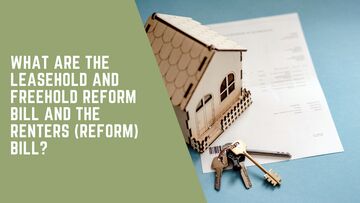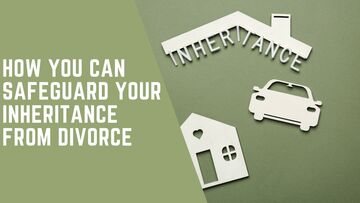What Is Dispute Resolution
News| 06.05.2022
Disputes can arise in a wide range of contexts between individuals (civil disputes) and businesses (commercial disputes). Dispute resolution is the process of finding a resolution to a disagreement between parties, either outside or within the court system. Where possible, it is preferable and highly encouraged to find a solution to disputes without the need to involve the courts, often through the use of Alternative Dispute Resolution (ADR).
Where ADR is not suitable or does not prove effective, filing a claim through a court may be unavoidable. In this article, we will explain what is meant by ADR, the advantages of ADR, and the process of taking civil action through the courts.

What Is Alternative Dispute Resolution (ADR)?
ADR offers a non-adversarial way of resolving disputes between parties without the need to go to court. In the UK, ADR typically refers to all dispute resolution methods that do not include court proceedings. These include:
- Negotiation – whereby parties to a dispute seek to negotiate a resolution without the involvement of a third party. While this method affords greater control to the disputing parties, without the intervention of a trained independent ADR practitioner, there is a greater chance of deadlock, which may be difficult to break.
- Mediation – whereby a neutral third party works with the disputing parties to find an amicable outcome to a dispute. The goal of the mediator is to facilitate an agreement between the parties.
- Conciliation – is similar to mediation but the third-party actively assists the parties in settling the dispute.
- Adjudication – is commonly used in contract disputes and involves an independent adjudicator who makes a decision on disputes.
- Arbitration – whereby an independent arbitrator makes an award to finalise a dispute.
Each method of ADR has its own merits and drawbacks, and these should be understood before proceeding. It is important to remember that if one method of ADR does not prove effective, another can still be used.

Why Consider ADR?
While each ADR method has its own merits, they all have a set of common benefits, including:
- Saving time: court-based litigation can take many months or even years, whereas ADR can lead to an effective resolution in much less time.
- Greater control and flexibility: Parties to ADR methods have a large say over how proceedings should occur and which methods should be used.
- Saving money: court-based litigation can also be extremely costly, especially if it continues for a long time. By seeking to find a resolution outside of the courts, considerable savings can be gained.
- Confidentiality: ADR methods are entirely private, making them preferable in the resolution of sensitive or private disputes
- Outcomes are more likely to last: ADR methods typically lead to amicable outcomes that are most likely to be adhered to in the long term. Agreements reached through ADR are also much more likely to preserve amicable relationships.
- Effective: ADR methods are extremely effective – the Ninth Mediation Audit produced by the Centre for Effective Dispute Resolution (CEDR) showed settlement rates for mediation of around 93%.
What If ADR Is Not Effective Or Suitable?
If ADR methods do not prove effective or are deemed unsuitable given the circumstances of the dispute, it may be necessary to pursue dispute resolution through civil litigation. There are several stages to civil litigation, hence why the process can be costly and time-consuming when compared to ADR. The main stages are as follows:
- Pre-action protocol - Depending on the nature of the dispute, it may be necessary to follow a pre-action process before filing a claim with the court. These protocols exist for a number of claim types, including personal injury, construction, defamation, housing disrepair, and dilapidation of commercial property disputes. Pre-action protocols set out the process for the exchange of letters outlining the dispute and the disclosure of relevant documents.
- Initiating the dispute claim – this starts with the completion of a Claim Form and, in some cases, a ‘Particulars of Claim’. These are filed at the county court, and a fee is paid.
- Claim Form is served on the Defendant, who has 14 days to admit to or defend the claim
- Completion of a directions questionnaire if the claim is defended
- Judge issues court directions listing the actions that must be undertaken before the case gets to trial.
- The case is assigned to a ‘track’:
- Small claims track for claims under £10,000
- Fast track for claims over £10,000 but less than £25,000
- Multi-track for claims over £25,000
- Any court directions issued be completed (e.g. disclosure of documents and expert court reports).
- Pre-trial Checklist – to check all court directions have been completed in readiness for the trial
- Court trial – at which the judge will adjudicate the facts and make a final decision on the dispute, the value of any award, and the method of enforcement, e.g. bailiffs, bankruptcy, charging orders, or orders for sale.
Final Words
It is clear from the above explanation of ADR and civil litigation that the latter is a more complex and lengthy process. This is precisely why ADR is so encouraged. Clearly, ADR will not prove suitable or effective in all disputes, but it keeps the number of civil litigation claims to a minimum.
Pearcelegal has a dedicated dispute resolution team who can advise and represent you with any civil or commercial claim. To make an appointment, please contact us on 0121 270 2700 or enquire through our contact form.
Expert advice for you Book a free consultation
The team at Pearcelegal will be delighted to discuss your legal matters and give you a no-obligation quote.



